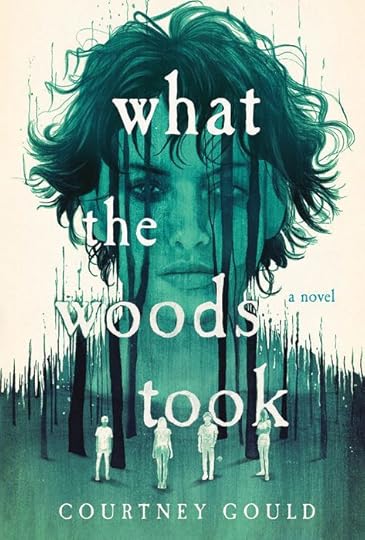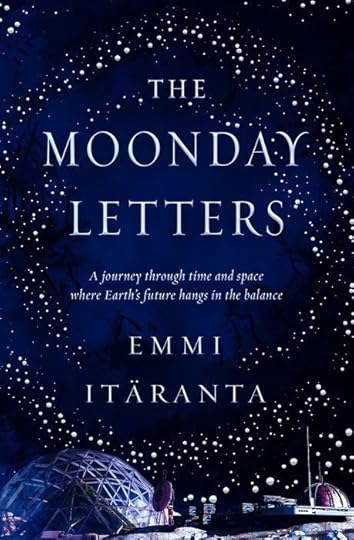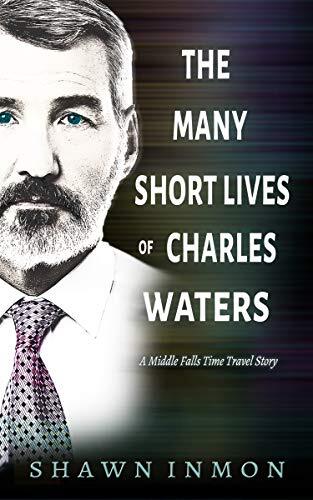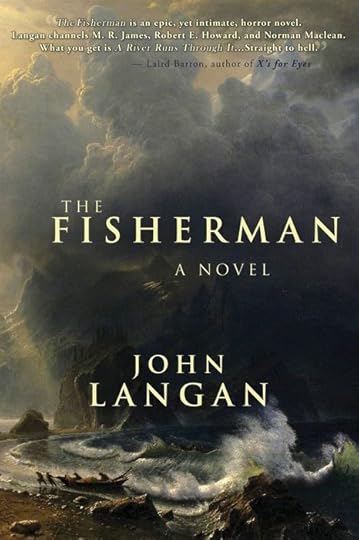Rachel Manija Brown's Blog, page 6
February 27, 2025
Something in the Walls, by Daisy Pearce

GREAT cover. (Look closely.) I'm having a run of "the cover is better than the book lately."
Mina, a just-qualified child psychologist, gets an unusual first patient: a teenage girl who might be a witch.
Mina was in a grief group to cope with the loss of her teenage brother, who had an immune deficiency that doomed him to die young, and died when he was fourteen. In the group, she met Sam, a journalist whose young daughter had died. Both of them hoped there was life after death, and Mina even thought she had a photo of her brother's ghost. So when Sam got assigned to cover a possible haunting-by-witch in the tiny village of Banathel, he gets Mina to come with him to rule out psychological causes.
In what will not be the last of her questionable professional moves, Mina and Sam move in with the family of Alice, the girl who might be a witch or be possessed by the ghost of a witch. Alice is sure that a witch is haunting her via the walls and the creepy fireplace in her bedroom, and that the witch allows her to see ghosts. Alice really does know a whole lot, including about dead people, that she has no way of finding out, and this has attracted a bunch of groupies who lurk outside, trying to get Alice to contact their dead loved ones. This is all complicated by the fact that her financially strained family would definitely benefit from publicity that might bring money, so they have a motive to fake the haunting.
The rest of the Banafel locals, who keep hag-stones to ward off evil, also believe in the haunting but are a lot less happy about it. "Burn the Witch" graffiti appears. In an intensely spooky scene, Sam finds his dead daughter's shoe in a fireplace. And then people who bully Alice start dropping dead...
Up to about the 75% mark, this book was very enjoyable, spooky folk horror. It had some issues but they weren't enough to spoil my enjoyment.
Issues: Mina's poor professional ethics and methods. Mina's irritating refusal to entertain the idea that anything supernatural could be happening even when there's really no other possible explanation, which doesn't match with the entire reason she came which was that she supposedly wanted to believe. Why it never occurs to anyone to move Alice out of the haunted bedroom to see if she improved. Why it never occurs to anyone to check the chimney to see if there's 1) a natural cause for the weird noises emanating from it, 2) a witch.
That sounds like a lot but the actual haunting and creepy superstitious village bits were so good. Halfway through, I ordered it off Ingram for my bookshop, planning to rec it to my folk horror customers.
Immediately upon finishing it, I rushed to Ingram to delete it from my cart.
This was a very frustrating book. Up until the last ten pages or so, it was engrossing, atmospheric folk horror - a subgenre I quite like. Then I got to the ending, which was so bad that it retroactively ruined the entire book for me. It was an absolutely unnecessary "clever" twist that made the whole book make no sense in retrospect. It also completely failed to explain or resolve what was going on with Alice and the witch, which was the main plot of the entire book!
Angry spoilers! ( Read more... )
WHAT ABOUT ALICE AND THE FIREPLACE WITCH???
 comments
comments
Published on February 27, 2025 09:07
February 19, 2025
All That's Left in the World, by Erik J. Brown

After a covid-informed pandemic, two teenage boys - one gay, one who hasn't yet figured out that he's bisexual - meet, slowly get to know each other, and go on a post-apocalyptic road trip.
I LOVED this book. There's so much about this story that I've seen done badly so many times, and it not only did all those things well, it did all sorts of other things well that I wasn't even looking for.
The romance is the slowest of slow burns, full of pining but very understandably so - they both have extremely good reasons for not talking about their feelings. Andrew thinks Jamie is straight because Jamie thinks he's straight, so he doesn't want to make Jamie uncomfortable or mess up their friendship by confessing a crush, especially given that they desperately need to stick together for their own safety. Jamie's feelings develop slowly, and he's uncertain what they mean and if Andrew feels the same way. I ended up incredibly invested in their relationship. So, no stupid misunderstandings or inexplicable refusals to just fucking talk to each other.
They both have dark secrets that are actually dark, and so it makes sense that they worry that the other might dump them or feel differently about them if they confess them. (I'm often annoyed by supposedly dark secrets that turn out to be something like "I like light bondage" or "I got in argument with my mom and then she got hit by a cement truck.")
Andrew is pretty funny and enjoys joking with friends, and he and Jamie initially bond by joking. But they both sound like teenage boys who enjoy joking with each other, and Andrew is funny like a teenage boy can be funny. There's no incessant quipping that sounds like each joke was carefully crafted by a professional writer. In a related matter that is often done badly, they each take turns narrating, and they sound like two different people.
And! The pandemic and the pandemic landscape are unexpectedly interesting. They wander through a series of post-apocalyptic tropes - looters, the nice on the surface but actually terrible community, dark tunnels, lone psychopaths - and every single one is well-done and plausible.
Very interestingly, the pandemic itself is different from any I've ever seen in fiction. It's basically a superflu, but one which spread fairly slowly, so things were slowly falling apart long before the whole landscape got depopulated. Also, the response was distinctly covid-like in terms of government denial and uselessness. As a result, though the world is extremely depopulated, there are very slim pickings at shops because supply lines fell apart quite some time before the plague burned itself out.
Anyway, this was great. It had a perfect balance between a very slow-burn friendship-to-romance, character development, and post-apocalypse action. Very suitable for teenagers, but I adored it as an adult. A sequel came out recently that I haven't read yet.
 comments
comments
Published on February 19, 2025 12:27
February 17, 2025
The In-Between Bookstore, by Edward Underhill

Darby, a transmasc guy from a small town in Illinois, has been living in NYC for ten years, since he turned eighteen. He's acquired queer/trans friend group, but just got fired and is about to lose his apartment. He decides to temporarily move back in with his mom in Illinois. But things have changed in his town. Michael, his old bestie/crush, who he had a terrible breakup with ten years ago, has come out as gay. And the old bookstore Darby used to work at is still there... and his pre-transition teenage self is still working there.
Isn't that a great premise? The central conceit of meeting your own younger self when you return to the town you grew up in is such a perfect metaphor, made even more powerful by the split between pre- and post-transition.
Unfortunately, most of the book is not actually about that. It's mostly about Darby just kind of hanging around and feeling repetitively guilty about having been totally out of touch with his extremely supportive mom, and crushing on Michael while they both either fail to or refuse to actually communicate about either their present feelings or what went down between them as teenagers. (Darby literally can't even remember what their fight was about, but when he tells Michael this, Michael gets mad and stomps off without telling him.) When Darby finally does actually talk to his teenage self, he's mostly interested in trying to stop his teenage self from getting in that fight with teenage Michael.
This would be kind of okay if the book was a romance, where things are centered around the romantic relationship, but it isn't. It's a coming of age story, but it's only in the last two chapters that any actual character growth happens. Up until that point, Darby is kind of maddening. He's 28 but acts at least eight years younger. That's the point - he's a case of arrested development - but it was so annoying to read. It doesn't help that Michael acts way more mature than Darby except when it's necessary to keep them from communicating about anything important, and then he just refuses to talk like an adult.
I found this book frustrating. The author is obviously talented but the book needed at least another draft. Also, the bookstore itself isn't important, it's just the place where young Darby works.
( Read more... )
I feel like I'm saying this a lot recently, but this book would have been so much better if the entire book had been about the supposed premise which in fact only got about 10% of the total page time.
 comments
comments
Published on February 17, 2025 14:33
February 14, 2025
Last night I dreamed...
...that a fantasy novel by Jay Williams had just been reprinted and I could carry it in my bookshop. (In reality, Williams wrote the Danny Dunn books and a wonderful, out of print children's novel, The Hero From Otherwhere. The book in my dream does not exist.)
Thrilled, I rushed to order it, as I remembered loving it when I was a kid. It was about a thirteen-year-old girl and a twenty-year-old man who become penpals, then travel to a fantasy world together. As that premise sounds potentially a bit sketchy, I decided to re-read it so I could confidently say, "I know what it sounds like, but it's a beautiful story of friendship and absolutely nothing sexual or romantic happens between them."
I settled in for the re-read. Here's the first sentence of chapter two:
Reading each other's letters, they both had plenty of orgasms.
 comments
comments
Thrilled, I rushed to order it, as I remembered loving it when I was a kid. It was about a thirteen-year-old girl and a twenty-year-old man who become penpals, then travel to a fantasy world together. As that premise sounds potentially a bit sketchy, I decided to re-read it so I could confidently say, "I know what it sounds like, but it's a beautiful story of friendship and absolutely nothing sexual or romantic happens between them."
I settled in for the re-read. Here's the first sentence of chapter two:
Reading each other's letters, they both had plenty of orgasms.
 comments
comments
Published on February 14, 2025 10:53
February 13, 2025
What the Woods Took, by Courtney Gould

A dark fantasy about a group of teenagers who are kidnapped from their homes and forced to participate in wilderness therapy, only to encounter actual monsters in the woods. GREAT premise!
Devin is a lesbian teenager who's been processed through a series of often abusive foster families. After she steals some money from her current foster parents, they have her kidnapped by a wilderness program supposed to straighten her out. She's dragged into the middle of the woods with four other teenagers whose parents have enrolled them because they did drugs, stole money, or were generally rebellious or sad. A pair of guidance counselors lead them on a very long hike through the woods, during which Devin gets in an intense love/hate relationship with one of the other girls. Then their counselors disappear...
For-profit wilderness therapy/survival camp for "troubled teenagers" is a real thing in America, and they really do kidnap teenagers with their parents' permission - and payment. It's abusive and unregulated, and a number of kids have been killed at those camps.
The book begins with an author's note similar to my paragraph above. But once the teenagers are violently kidnapped, their forced hike through the woods proceeds with surprisingly little abuse beyond the fact that they're forced to be there. There's genuine wilderness training and self-esteem-building activities. I don't want to sound like "just" being kidnapped and held against your will isn't abusive by itself, but these programs are typically very abusive in other ways too. I felt like the awfulness of these programs was inexplicably downplayed despite the author apparently writing the book specifically to expose them!
The beginning part, before the counselors vanish, is fine but feels a bit slow. The two boys in particular are not very differentiated, and I kept mixing them up. Surprisingly, the best part of the book is the monsters themselves. What they turn out to be is unexpected and SO COOL, and I wish there was more of it. The book overall is about 70% teenagers interacting, 30% monsters/teenagers vs monsters. That would be fine if I was more into the teenagers, and it wasn't like I wasn't into the teenagers. They're fine. But for me, not more than fine.
Overall I would say this was a perfectly fine book that I didn't love. Except for the part that really focused on the monsters. That, I loved. But that's only about 10% of the whole.
So what are the monsters? ( SPOILERS! )
 comments
comments
Published on February 13, 2025 13:56
February 12, 2025
A pair of brief nonfiction reviews. Both books could have been a feature article.

Sweet Nothings, by Sarah Perry.
Ostensibly a book about candy, organized by color. Actually, each entry is an anecdote or set of musings about her life, often only very tangentially connected to the candy in question, plus a paragraph or so about the candy IF THAT. Very annoying bait-and-switch if you were hoping for a book that is actually about candy, and the essays aren't interesting enough to make up for it. The prose is accomplished, but the book as a whole feels a bit pretentious and airless. Too much grief and polyamory, not enough candy.

More Than a Doll: How Creating a Sports Doll Turned into a Fight to End Gender Stereotypes,by Jodi Bondi Norgaard.
An account of the author's creation of a sports-based doll and attempt to market it to toy companies; unsurprisingly, she encounters a ton of resistance to the idea of a doll for girls based on sports rather than on sex, mothering, or fashion. Mildly interesting but could have been a feature article.
 comments
comments
Published on February 12, 2025 12:09
February 10, 2025
The Moonday Letters, by Emmi Itäranta

Isn't that a gorgeous cover?
The book is an odd, dreamy work of epistolatory science fiction/fantasy, mostly in the form of unsent letters written by Lumi to her nonbinary spouse Sol. She's in the habit of writing a journal of letters to Sol, as they both often travel separately throughout the solar system for work, and giving them to Sol when they reunite. But this time, their reunion keeps getting delayed, and she keeps arriving at places just after Sol has left. Is Sol evading their own spouse, and if so, why?
The plot sounds like a mystery, but it's structured as a quest and feels like an unusually detailed dream. Beautiful images swim in and out, and moments feel fraught with a meaning just out of grasp. At one point Lumi visits Europa, whose cities are under the sea and where everyone speaks only in whispers, and even those only when absolutely necessary, because loud noises could crack the ice. In true dream fashion, that doesn't really make sense, but it's vivid and compelling.
Lumi follows in Sol's footsteps, occasionally gaining clues, while thinking back on their relationship and realizing that maybe she doesn't know Sol as well as she thought. She's from an Earth which has been radically restructured and is largely a playground for wealthy visitors, while the people actually live there are poor and often desperate to get difficult-to-obtain passports out; she apprentices with a woman who does magical soul healing with a spirit animal, gets her own spirit animal, and also a passport to Mars; many years later, she's still uneasily conscious of her status as an immigrant.
Lumi travels often within the solar system as a soul healer, always accompanied by her cat Ziggy; the difficulties of traveling with a cat are realistically detailed, and Ziggy is very present in the story without ever affecting the plot. We eventually learn that she had another cat who was euthanized when the space station she and Sol lived on was shut down due to a plague, and only humans were allowed off. Is that why Lumi is so determined to never leave Ziggy behind? She doesn't say. Is Lumi's soul healing real? Sol doesn't believe in it, but Lumi's spirit animal feels as present, when it appears, as Ziggy. (Ziggy survives. Lumi's spirit animal may or may not, it's complicated.)
( Read more... )
I'm not sure if some of the book's oddities - Lumi's extreme calm, Sol's unknowability, the emotionally distanced feeling in a story whose action is entirely driven by a marriage, the very open ending - are flaws or exactly what the author intended. I enjoyed reading it a lot, because it's so atmospheric and I will forgive a lot for atmosphere, and it feels so different from most books.
Itäranta is Finnish and wrote her first two books in Finnish and English simultaneously! Not sure if she did the same for this one.
 comments
comments
Published on February 10, 2025 12:26
February 5, 2025
Book Recs Wanted for my bookshop
1. Books on autism, ADHD, and other forms of neurodiversity. They can be either general or geared toward self-help.
Criteria: 1) MODERN! They should ideally have been published within the last five years. 2) Written for laypeople, not scientists or medical professionals. 3) NOT looking for pure memoirs like "my life as an autistic person," though elements of memoir are fine.
2. Books on human behavior/neuropsychology that are NOT self-help - think Oliver Sacks, except not actually by Oliver Sacks.
Criteria: 1) Not by Oliver Sacks, V. S. Ramachandran, Atul Gawande, or Robert Sapolsky as I already know about them, but that's the sort of thing I'm thinking of. 2) MODERN! Ideally, published within the last five years. 3) Not bullshit, woo-woo, or otherwise totally unsupported by any factual evidence, I'm looking at you Julian Jaynes. 4) Not right-wing or misogynistic. No "evolutionary biology says women evolved to be sex slaves."
How are Sapolsky's more recent books like Behave? I've only read Why Zebras Don't Get Ulcers.
3. Mind-expanding biology books for laypeople. Like Ed Yong and Siddhartha Mukherjee's books, but not by them as I already know about them.
For all of these, I would particularly like books written by women if there's any suitable.
 comments
comments
Criteria: 1) MODERN! They should ideally have been published within the last five years. 2) Written for laypeople, not scientists or medical professionals. 3) NOT looking for pure memoirs like "my life as an autistic person," though elements of memoir are fine.
2. Books on human behavior/neuropsychology that are NOT self-help - think Oliver Sacks, except not actually by Oliver Sacks.
Criteria: 1) Not by Oliver Sacks, V. S. Ramachandran, Atul Gawande, or Robert Sapolsky as I already know about them, but that's the sort of thing I'm thinking of. 2) MODERN! Ideally, published within the last five years. 3) Not bullshit, woo-woo, or otherwise totally unsupported by any factual evidence, I'm looking at you Julian Jaynes. 4) Not right-wing or misogynistic. No "evolutionary biology says women evolved to be sex slaves."
How are Sapolsky's more recent books like Behave? I've only read Why Zebras Don't Get Ulcers.
3. Mind-expanding biology books for laypeople. Like Ed Yong and Siddhartha Mukherjee's books, but not by them as I already know about them.
For all of these, I would particularly like books written by women if there's any suitable.
 comments
comments
Published on February 05, 2025 11:25
February 4, 2025
Charles Waters & Hart Tanner (Middle Falls Time Travel), by Shawn Inmon

Charles Waters is a middle-aged accountant who's clearly autistic, though undiagnosed. He leads a solitary and uneventful life until he's given one month to live. He lives it and dies. Then he wakes up in the doctor's office, being given one month to live...
This is a fun and unusual riff on the Middle Falls formula, give Charles's very short time span in which to make changes. (The Universal Life Center, which annoys me as always, does eventually make some changes too, to give the poor guy a chance.) The story is about how Charles can live his life to the fullest and expand what he thinks are his limits without messing with his essential self. In this case, the key is friendship with a guy in his apartment building whose life is just as limited as Charles's was initially, but in a less obvious way. It's very sweet.
99% of the book treats Charles's unstated but obvious autism as just how he is, not something that needs to be fixed or makes him spiritually special or anything other than an important aspect of his character. There is one bit of dialogue that implies that maybe he's actually God (!!!), of course at the Universal Life Center, but that's never mentioned again and the Universal Life Center characters clearly have no idea what's really going on.
Content notes: Charles dies of cancer, but there's no real details.

Hart Tanner is an elderly con man, currently scamming and being the boy toy of even older ladies, until he dies a particularly miserable death. He wakes up a young man, before his life goes completely to shit, and quickly discovers that every time he dies, he wakes up at the same point. It's the perfect get out of jail free card! Except, of course, a life with no challenges or real relationships eventually gets boring...
The book doesn't go in the obvious direction of being about Hart growing a conscience, realizing how he hurt people, and turning over a new leaf; that does happen, more or less, but it's not what the story is about. Nor, when he meets up with his abusive mother, is it about forgiving and reconciling with her THANK GOD - how that does go down is very satisfying if you had bad parents. What's it mostly about is, as is usual with Middle Falls, creating and maintaining an important relationship. In this case, that relationship is mostly with a little rescue mutt named Mushu. There is dog death in the context of Mushu eventually dying of old age, but because of how time travel works, it's impermanent in a similar way to how Hart's deaths are impermanent. The whole story is really touching.
Both these books were very enjoyable and good examples of the series.
Content notes: Child abuse (mostly in the past), suicide (in the context of knowing you'll just immediately wake up in a new life), dog death (ditto, and peacefully of old age.)
 comments
comments
Published on February 04, 2025 09:57
January 29, 2025
The Fisherman, by John Langan

An old man whose wife died of cancer takes up fishing, and becomes fishing buddies with a younger man whose wife and kids died in a car crash. His friend finds a mysterious diary about a legendary fishing spot, and they drive to it. On the way they stop at a diner, where the owner tells them a very long story about the horrific history of that fishing spot. Then they go to fish it, and not unexpectedly, it does not go well.
Cosmic horror as nested tall tales by fishermen; about half or a third of the book consists of a single story-within-the-story. It's very well-written and the mythology is interesting, but I wish I'd read it without having experienced the hype around it, because while it's a good solid novel, I was not as wowed as I'd expected.
I loved the first third, which is very Stephen King-esque and mostly about grief and living anyway and making connections with other damaged people, with hints of creepiness in the background. The long diner story is objectively cool, but I really wanted to get back to the old widower. And while the weird fish he catches is an outstandingly creepy moment, the other stuff that happened felt more like just another horror story; it wasn't as original and mythic as the legendary figure of Der Fisher from the diner story or as intimate and touching as his ordinary life at the start.
It's a good book but not an outstanding one. The unusual structure didn't quite work for me - I would have liked it better as a pair of linked novellas.
 comments
comments
Published on January 29, 2025 11:48



